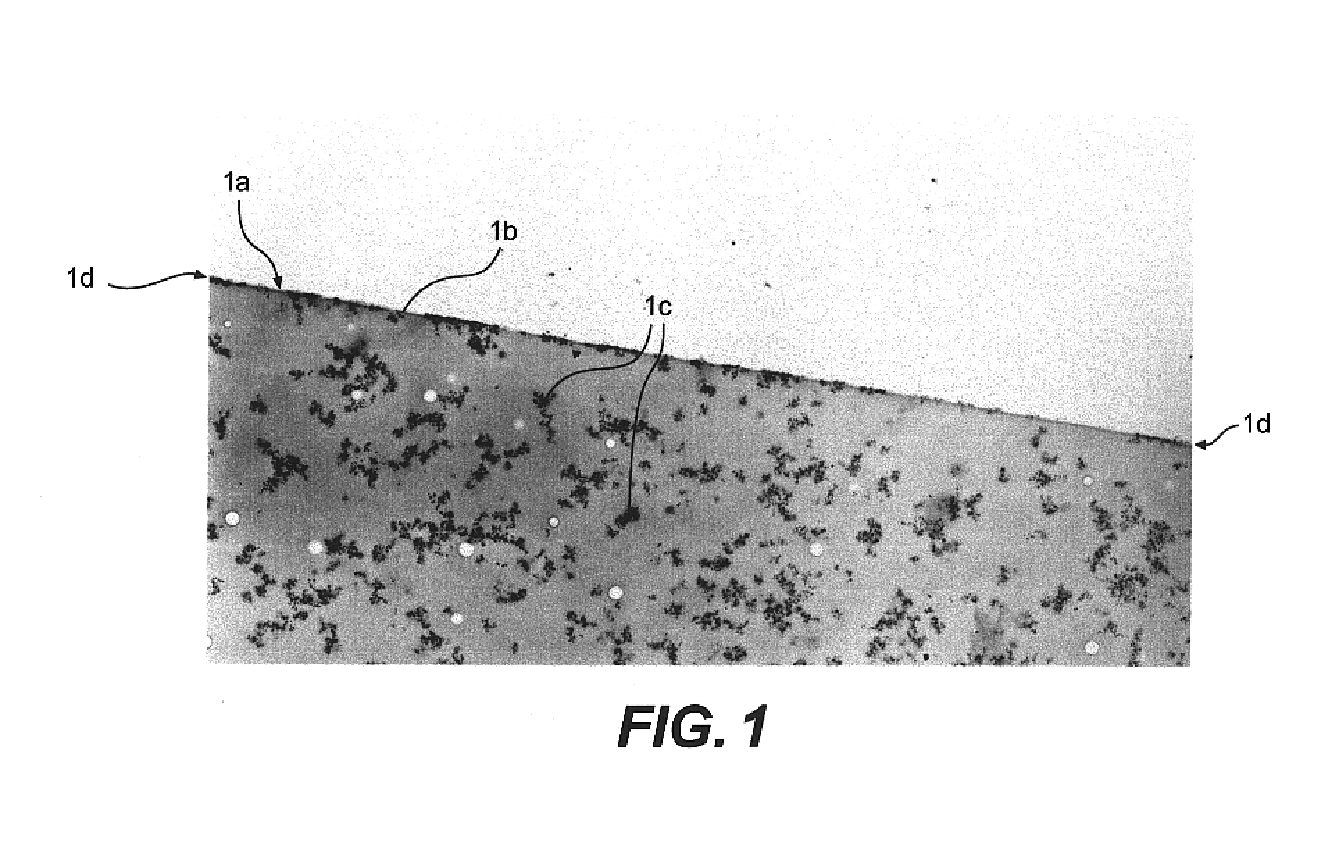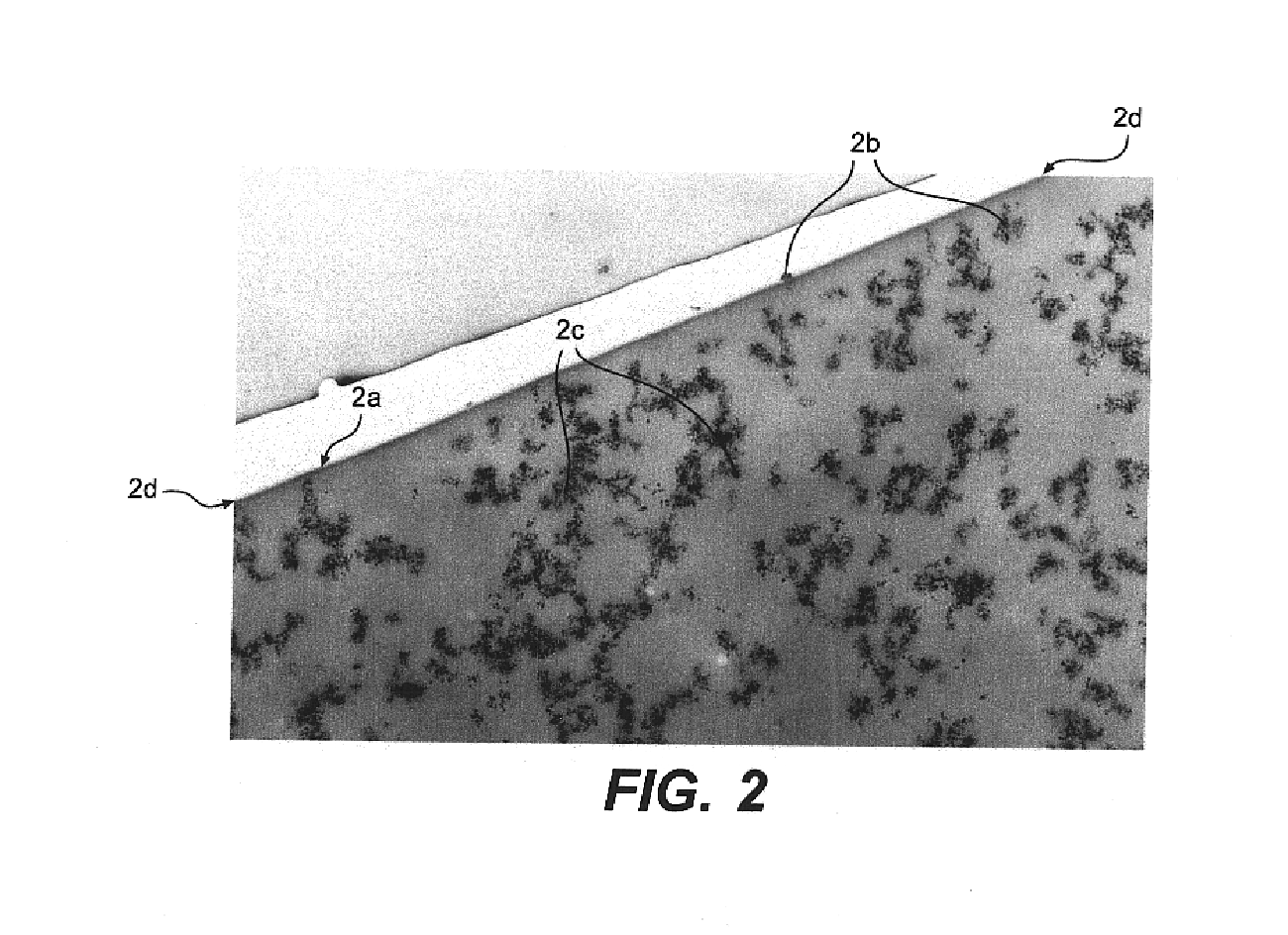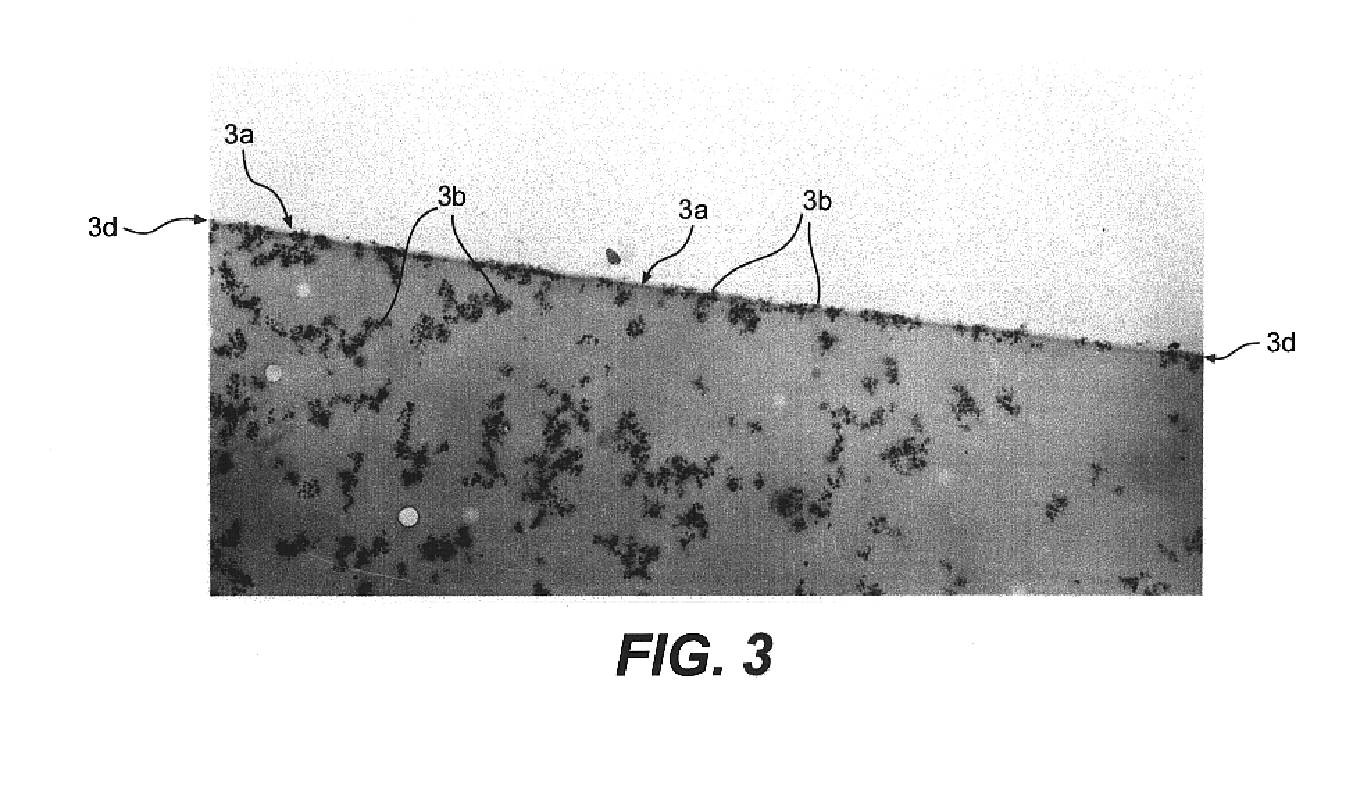Coating compositions having improved scratch resistance, coated substrates and methods related thereto
a coating composition and scratch resistance technology, applied in the field of coating compositions having improved scratch resistance, coated substrates and methods related thereto, can solve the problems of topcoat film-forming compositions, particularly, defects, paint defects in the application or curing of basecoat or clearcoa
- Summary
- Abstract
- Description
- Claims
- Application Information
AI Technical Summary
Benefits of technology
Problems solved by technology
Method used
Image
Examples
examples
[0326]Example A describes the preparation of a polysiloxane polyol which is the hydrosilylation reaction product of a pentasiloxane containing silicon hydride and trimethylolpropane monoallyl ether. Example B describes the preparation of a carbamate functional group-containing polysiloxane using the polysiloxane of Example A as a starting material. Example C describes the preparation of a carbamate functional group-containing polysiloxane using a commercially available hydroxyl functional polysiloxane.
[0327]Examples AA, BB, CC, DD and EE describe the preparation of various silica dispersions which are subsequently incorporated into coating compositions.
[0328]Examples 1 through 10 describe the preparation of one-pack coating compositions which contain aminoplast curing agents.
[0329]Comparative Examples 1 through 3 describe the preparation of high solids coating compositions which were used to form the transparent topcoats in comparative multi-component composite coating compositions....
example a
[0345]This example describes the preparation of polysiloxane polyol, a product of the hydrosilylation of pentasiloxane with an approximate degree of polymerization of 3 to 4, i.e., (Si—O)3 to (Si—O)4. The polysiloxane polyol was prepared from the following mixture of ingredients:
[0346]
EquivalentParts By WeightIngredientsWeightEquivalents(kilograms)Charge I:Trimethylolpropane174.0756.0131.54monoallyl etherCharge II:MASILWAX BASE1156.72594.893.21Charge III:Chloroplatinic acid 10 ppmToluene0.23Isopropanol.071Polysiloxane-containing silicon hydride, commercially available # from BASF Corporation. 2Equivalent weight based on mercuric bichloride determination.
[0347]To a suitable reaction vessel equipped with a means for maintaining a nitrogen blanket, Charge I and an amount of sodium bicarbonate equivalent to 20 to 25 ppm of total monomer solids was added at ambient conditions and the temperature was gradually increased to 75° C. under a nitrogen blanket. At that temperature, 5.0% of Cha...
example b
[0348]This Example describes the preparation of a carbamate-functional polysiloxane using the polysiloxane polyol of Example A.
[0349]A suitable reaction vessel equipped for vacuum distillation was flushed with N2. To the reaction flask was added 1782.9 g of polysiloxane polyol of Example A, 5.48-g of butyl stannoic acid and 16.41 g triphenyl phosphite. The reaction was placed under vacuum and heated to a temperature of 140° C. To the resulting mixture was added over a period of 3 hours, 665.4 g of a 38% solution of 1-methoxy-2-propyl carbamate in 1-methoxy-2-propanol. After the addition was completed the temperature was increased to 150° C. and held until distillation was complete. The reaction was cooled to a temperature of 90° C. and brought to atmospheric pressure. The resulting resin was diluted with 825.3 g of 1-methoxy-2-propanol.
PUM
| Property | Measurement | Unit |
|---|---|---|
| weight percent | aaaaa | aaaaa |
| weight percent | aaaaa | aaaaa |
| weight percent | aaaaa | aaaaa |
Abstract
Description
Claims
Application Information
 Login to View More
Login to View More - R&D
- Intellectual Property
- Life Sciences
- Materials
- Tech Scout
- Unparalleled Data Quality
- Higher Quality Content
- 60% Fewer Hallucinations
Browse by: Latest US Patents, China's latest patents, Technical Efficacy Thesaurus, Application Domain, Technology Topic, Popular Technical Reports.
© 2025 PatSnap. All rights reserved.Legal|Privacy policy|Modern Slavery Act Transparency Statement|Sitemap|About US| Contact US: help@patsnap.com



